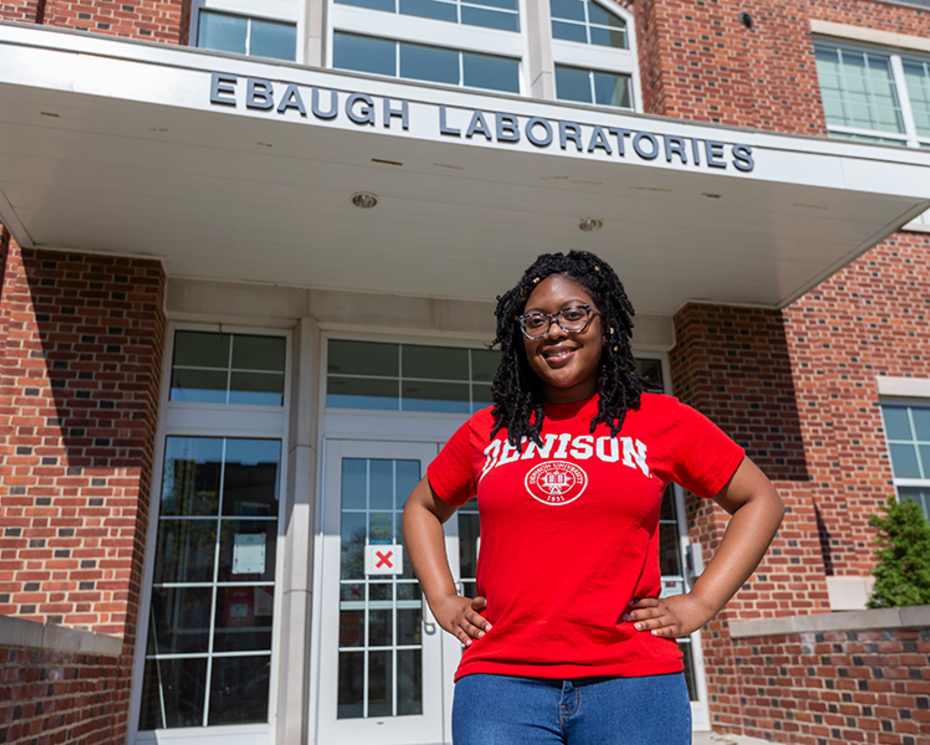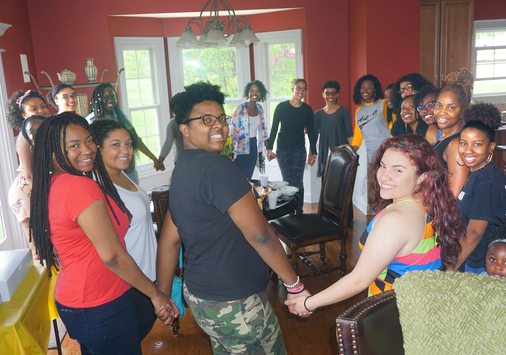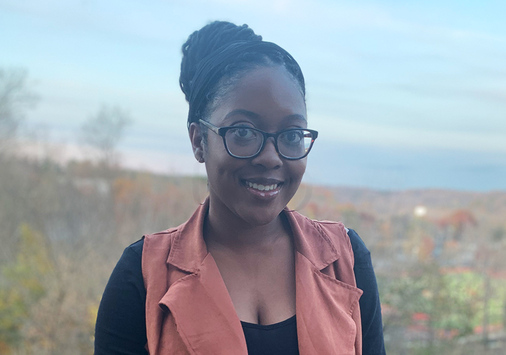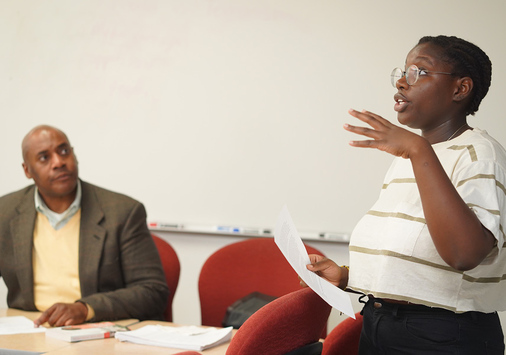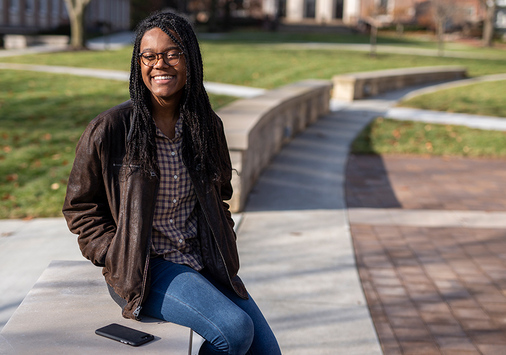Action Plan
Principles
While many principles are embedded throughout our planning, five frame the action plan:
Diversity, Equity, and Inclusion - Our work is focused on ensuring that every member of our community feels listened to, valued, and respected and has the opportunities to succeed at Denison.
Antiracism - Our work requires members of our community to be committed to doing their part to ensure that racism has no place on our campus.
Shared Responsibility - Our work will be guided by a shared equity leadership approach. We will scale our work by organizing teams across campus who take collective responsibility in developing and moving our IDEA agenda forward.
A Commitment - Our work will be ongoing. We must be committed for the long haul, driven by a continual process of learning, taking actions, assessing, refining our work, and staying committed over time.
Accountability - We will instill a sense of accountability for progress at every level of the college.
Strategies & Recommendations
The following strategies and recommendations are designed to address direct feedback from the Denison community and to identify and measure tangible actions and progress.
Diversity Recruiting Strategy for Administrative and Support Staff
We have made good progress in recruiting a diverse community of students and faculty. These efforts need to continue. At the same time, we need to make more progress with staff hiring. Human Resources (HR) will examine our process for recruiting and create a new diversity recruiting strategy for administrative and support staff.
Onboarding and Mentorship Program
We also need to pay attention to retention. Our retention rates for students and faculty are consistent across racial and ethnic categories, but we need to continue this work while doing more to support staff. As part of this work, HR will develop a yearlong onboarding and mentorship program to ensure that we retain diverse staff members.
Leadership Diversity
We need to continue to make sure we add diversity to the leadership of the college. The Chair of the Board and President will work with the IDEA Team to ensure we are appropriately diversifying both the board and senior leadership.
Alumni Council: Expand Affinity Groups
The Alumni Council is an influential member of the Denison community. The Office of Alumni & Family Engagement will partner with the Alumni Council to create affinity alumni groups similar to the Black Alumni Association and Denison Pride for groups that have historically been marginalized on campus. In addition, they will create new ways to utilize the time and talents of these groups to effectively advance the Denison Forward principles and priorities.
Human Resources will work with a consultant to develop a comprehensive approach for ongoing IDEA training for staff. This will build on workshops we piloted during spring 2021. It will include:
New Staff Orientation
Add a component to new staff orientation on what it means to work in and benefit from a diverse environment.
Ongoing IDEA-Specific Workshops
During the 2020-2021 academic year, we piloted two different workshops designed to create a baseline understanding of inclusion, diversity, equity, and antiracism. We then provided a framework for applying action to antiracism efforts from the perspective of the employee. The next steps include finalizing these workshops and making them available to all staff on a continuing basis. As staff goes through these workshops, we will add more advanced versions.
Embed IDEA Training in Existing Programs
Add IDEA components to existing and ongoing staff training programs. Examples include the Lunch & Learn series that is designed to provide relevant information, tools, and resources on important topics that affect Denison employees as professionals and individuals, and the “Tip of the Week” section of the employee newsletter (Denison In the Know). Work-related IDEA information and action steps can be added to these existing programs.
Include IDEA Principles and Priorities in Employee Evaluations
Administrators and staff will report annually on IDEA activity as part of annual evaluations.
IDEA Training for Student Employees
Many staff serve as supervisors of student employees and/or interact with student employees. The new Office of Student Employment will add training for student supervisors that includes a strong IDEA component with a focus on recruitment, equity, and mentorship.
To help with this work, HR will work closely with the Engagement and Communications Committee (ECC) to ensure the work is engaging staff and helping staff to advance their understandings of IDEA principles. HR will have access to resources and external consultants with expertise in this work.
Academics are the core enterprise of Denison University. As such, we need to continually assess and enhance professional development opportunities for our faculty while ensuring the curriculum and pedagogies support a diverse community of learners. This work is multifaceted and ongoing. We will be guided by the principle of inclusive pedagogies — an approach to classroom learning that is student-centered and proactively focuses on ensuring students from all backgrounds are invited to and engaged in the learning environment.
Onboarding New Faculty
The Provost’s Office will add training on inclusive pedagogies into new faculty orientation, ensuring new faculty have an opportunity to acculturate Denison’s definition of inclusive pedagogies, its foundational relationship to the college, and where faculty can find resources and opportunities. The Provost’s Office is examining an approach to make new faculty orientation more group-based and extend it across the first year. Assuming this happens, we will embed ongoing training around inclusive pedagogies into this revamped program.
Ongoing Professional Development of Faculty
The Provost’s Office will work with the Center for Learning and Teaching to offer ongoing workshops on effective and inclusive pedagogies. The center will pilot a program where small groups of faculty are selected and charged with discussing inclusive pedagogies across disciplines.
Academic Department Assessments and Planning
To date, every academic department has been thinking about issues of diversity, equity, access and inequality, with the purpose of better supporting student belonging and academic success. Some departments are farther along on this journey than others. The Center for Learning and Teaching and the Associate Provost for Diversity, Equity, and Inclusion will work with each department to support continual advancement. To do this work, data will be collected from students on their classroom/learning experiences. Departments will be asked to develop plans for continual progress.
Department Chair Training and Support
Department chairs are often the keepers of departmental culture, enforcers of departmental norms, and heralds of departmental vision. In its present state, formal departmental chair training is logistical in nature. The Dean of the Faculty will work with existing chairs to add an IDEA component to new Chair training. The Dean of the Faculty will also work with department chairs to ensure support for department-based IDEA efforts with new funding.
Defining and Measuring Teaching Effectiveness
A number of questions have been raised about how we define and measure teaching effectiveness. The Center for Learning and Teaching and Faculty of Color and International Faculty (FOCIF) hosted Dr. Philip Stark of UC-Berkeley for a discussion on teaching evaluations in April 2021. Faculty have expressed interest in revising our current course evaluation instrument and supporting a broader conversation about teaching effectiveness in spring 2022.
General Education Power and Justice (P) Requirement Review
The P requirement was last reviewed in 2015 by the General Education Competency Committee (GECC) and their recommended changes were approved by faculty vote in 2016. The Academic Affairs Committee (AAC) will be charged with starting a process to review the P requirement to ensure it is meeting the pedagogical goals consistent with Denison Forward, the updated Diversity Statement, and the University Mission Statement.
Denison students live on campus for four years and have unique opportunities to engage in and learn from cross-cultural interactions. Too often, however, students fall into segregated patterns of group formation and fail to build bridges to socialize and learn from others. Denison will remedy this by articulating the value of living and working across differences and by advancing a program focused on teaching students the competencies for interactions. This will include creating structure around teaching the skills of engagement in hard conversations, learning through listening, developing empathy and doing antiracism work. To enact this, the Division of Student Life will focus on four areas:
Cross-cultural Conversations
The Student Life Division will undertake a process to create new ongoing conversations around civic matters as they relate to diverse identities and perspectives. This will be done in ways that engage a broader array of students in peer-to-peer dialogues. It will also engage community partners, alumni, outside facilitators, and educators to teach students how to build relationships and have difficult conversations.
Engage Student Groups in Antiracism Work
The Alford Community Leadership & Involvement Center (CLIC) will connect and engage student organizations with IDEA principles and initiatives. As part of this work, CLIC will focus on groups that have not been historically diverse and/or connected with diversity and inclusion efforts on campus to help them develop the skills, commitment and plans to support antiracism efforts.
Engage Athletics in Antiracism Work
The Division of Student Life will collaborate with the Department of Athletics to leverage efforts already underway by the leadership of the division, coaches and the Diversity and Inclusion Athletic Advisory Group (DIG), to engage varsity athletes in antiracism initiatives. As a corollary of this work, more support will be given to varsity athletics coaches to focus on recruiting teams that are more diverse and representative of our student body as a whole.
Support for C3 Organizations
The Office of Multicultural Student Affairs will be renamed the Center for Belonging and Inclusion and will have an enhanced mission and resources that will focus on providing education and support to all students, and particularly our Cross-Cultural Community (C3) organizations. This new Center will be charged with creating new community-wide traditions and collegiate practices rooted in an inclusive programmatic framework that supports our overall vision to intentionally thrive as a premier inclusive, equitable community and supports the intersectional identities of all of our students.
To enhance the quality and quantity of cross-cultural conversations, the work above will benefit from community partners, alumni, outside facilitators, and educators to teach students how to build relationships and have difficult conversations. To do this work, the Division of Student Life will coordinate with the Black Alumni Association and other alumni of color, as well as specific local and national organizations that are also committed to IDEA.
Our purpose is to provide our students with a life-shaping liberal arts education, and our goal is to launch students quickly and successfully into lives and careers. Students of color can often face obstacles in the career exploration, preparation and launch process. To make progress we need to build a culture in which the academic journey engages with career exploration at regular intervals. We also need to make sure students have the resources and opportunities to explore different career paths and acquire the skills, networks, and experiences to launch into their chosen career paths.
Equitable Access to Career Paths
The Knowlton Center for Career Exploration will continue to lead this work. They will continue to have staff focused on first-generation and students of color. They will also continue to increase funds so all students can participate in programs and internships. More emphasis will be put on engaging alumni of color and local groups in the Columbus region who can be mentors for students. Another area of emphasis will be engaging with key academic departments to identify ways coursework can relate to skill-building, competencies, and developing fluency in the nuts and bolts of career-related documents. These are essential steps in an iterative process in which students can evaluate and evolve the relationship between their education and their post-graduation trajectory.
The university will approach sourcing with more intentionality in identifying and purchasing from diverse vendors. This approach will create financial pipelines between Denison and vendors that will uplift diverse vendors and also foster conversation about IDEA values between Denison and existing vendors who wish to continue relationships.
Purchasing
The Purchasing Office will develop RFP vendor criteria that include IDEA considerations of equity. They also will develop a diverse vendor list to open new pathways for sourcing, for example from minority- and women-owned businesses.
